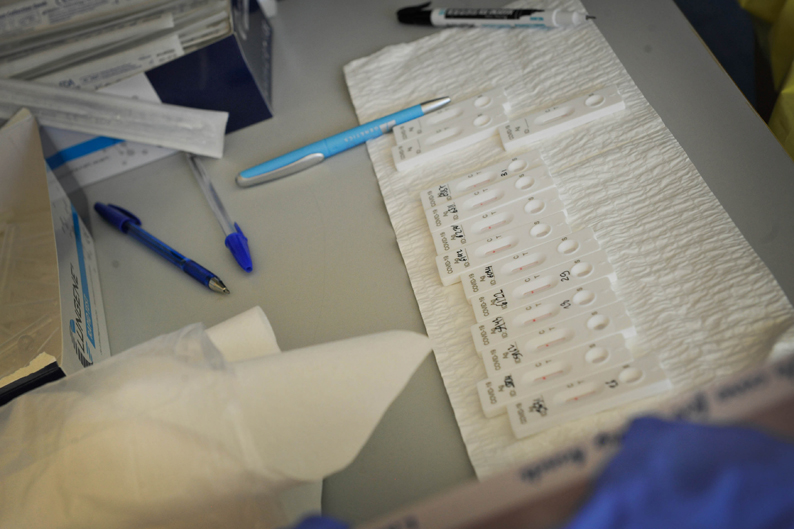After more than a year and a half of living with lockdowns and restrictive measures, people want to know when the nightmare will be ending, with scientists not able to put a finger on when the pandemic will end.
Health experts are, however, seeing evidence that COVID-19 will become endemic just as pandemics blighting humanity in the past.
In comments to the Financial Mirror, virologist and government advisor on the coronavirus, Dr Peter Karayiannis, said that “it’s too soon to say when all this will end.
“Some scientists have jumped the gun saying that we are close to seeing the pandemic becoming endemic, essentially taking its place next to other seasonal viruses. This will eventually be happening, but we don’t know when”.
He argued that scientists cannot pinpoint the end of the pandemic as the two main variables in the equation are unpredictable.
“One is human behaviour, that is how well we conform to protection measures and the vaccination rate. And secondly the virus itself. With a large part of the global population still unvaccinated, the virus has a lot of scope to mutate,” said Dr Karayiannis.
He pointed out that while western countries have a high vaccination rate, reaching 95% in some countries such as Denmark, other countries have a very low rate. Contrary to what one might expect, even Russia has a low vaccination rate, with only 25% being fully vaccinated, said the virologist.
It is estimated that some 6 billion doses of COVID-19 vaccines have been administrated globally, which means that close to half the world’s population has received at least one dose.
The virologist argued that as long as there are large unvaccinated populations, the appearance of more contagious variant of the coronavirus, one that may even evade vaccines, is always possible.
“If a more contagious variant does not make its appearance, we should be able to bring the pandemic under control with a pickup in vaccination rates across the world.”
Karayiannis said that the original ‘wild type’ of the coronavirus had a transmission rate of 1 to 3, while the deadlier and more contagious Delta variant increased that ratio to 1 to 7.
Virus will have to adapt
“However, indications are that sooner or later, the virus will become endemic as it will have to adapt to an environment in which the majority of people are protected, either through vaccinations or natural immunity,” said Karayiannis.
He explained that SARS-CoV2 causing COVID-19 will probably adjust its protein spikes in such a way that it will allow it to infect the host, but without causing a strong reaction. This as the virologist said, will result in a milder disease.
He said that most likely, the coronavirus could find its way back to the animal kingdom hiding in animals such as bats and could resurface some time in the future.
Pulmonologist Dr Charis Armeftis stationed at the COVID ICU clinic at the Limassol General, told the Financial Mirror that he seconded Karayiannis’ estimate that the virus will become endemic at some point, making its appearances every six months or so.
Dr Armeftis also echoed Dr Karayiannis’ concern that as long as there are large unvaccinated populations, seeing new variants popping up is unavoidable, “that is why we can’t give an estimate on when the pandemic will end”.
Immunity of certain groups
He pointed out that another variable is that the immunity of certain groups, such as the elderly and people belonging to vulnerable groups who were vaccinated earlier on in the vaccination rollout, is waning.
“We must proceed with administrating booster shots to these people as soon as possible in order to keep up the immunity rate amongst the community,” said Dr Armeftis.
He added that studies have shown that the immunity offered by vaccines begins to wane after six months of the completion of one’s vaccination scheme.
Asked what to expect in Cyprus over the coming months, the pulmonologist said that scientists expect to see some clusters in schools, universities and closed structures, such as nursing homes and prisons.
“The extent of these clusters will depend on how well we abide with protective measures, and if we are able to push our vaccination rate closer to 90%,” said Armeftis.
“Had we not achieved a vaccination rate of over 80%, then we would have been in trouble. Lockdowns are no longer on the table, and unvaccinated people would have been at a higher risk,” he said.
According to the Health Ministry’s latest data, 80.6% of the island’s adult population has received at least one dose of the vaccine and 77.1% are fully vaccinated.
Dr Armeftis said that “essentially the unvaccinated are currently being protected by the majority of people who have been vaccinated and the high numbers of people who had got infected during the last wave of infections”.
He concluded by calling people once more to get their vaccine and enhance society’s shield against the virus.










